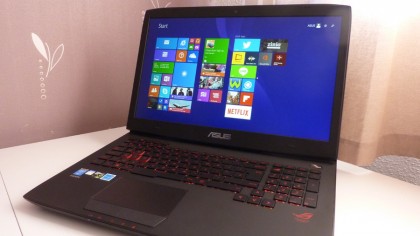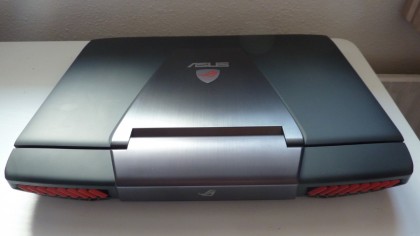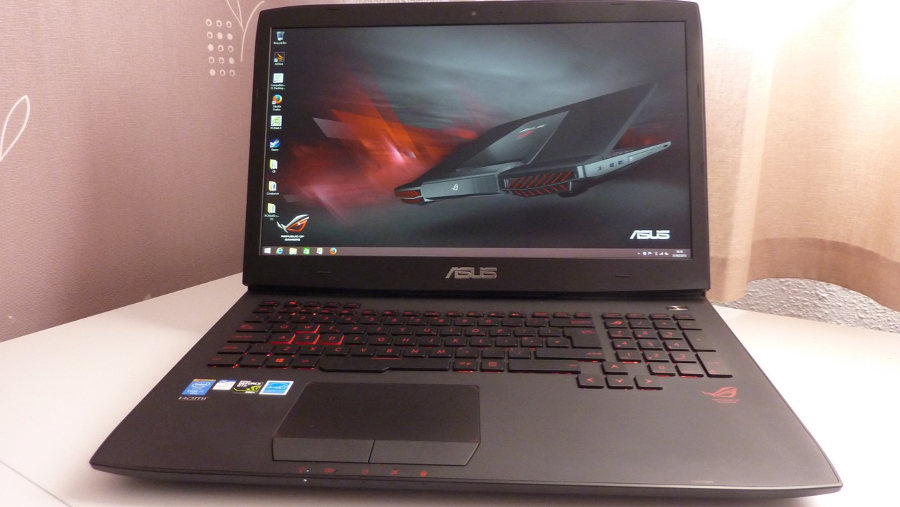Why you can trust TechRadar
The benchmark results for the G751JY were as follows:
- 3DMark: Cloud Gate: 20197; Sky Diver: 16987; Fire Strike: 5880
- Cinebench: CPU: 608 points; Graphics: 101.87 fps
- PCMark 8 (Home Test): 3795
- PCMark 8 Battery Life: 2 hours 11 minutes
- Middle Earth: Shadow of Mordor (1080p, Ultra): 50.58 fps; (1080p, Low): 101 fps
- Metro: Last Light (1080p, Ultra): 25.67 fps; (1080p, Low): 48.3 fps
When I started playing games on the G751JY, the first thing I noticed was how quiet it runs. Even with a long benchmark running with all the detail settings cranked up, the fans were no louder than a gentle background hum. That's a huge benefit, and a pleasant contrast from Gigabyte's P37X, or indeed many gaming laptops, which quickly spin the fans up as soon as you load a game, making a noise that's most unpleasant.

Additionally the large chassis is more comfortable for gaming than a 13 or 15-inch laptop, with less need for hand contortion to reach your spell shortcuts or change weapon, for example.
There wasn't a moment I didn't enjoy using this machine. It feels just the right size for long gaming sessions, there's plenty of storage, it doesn't get loud and it looks good too.
Performance is very good also, although the results aren't the very fastest I've measured from a gaming laptop. Gigabyte's P37X beats it in most benchmarks, especially at higher detail where the extra video memory comes into play.
A good example is the 3DMark result. In the less-intensive Cloud Gate and Ice Storm tests, the G751 and P37X are neck and neck, but in the more demanding Fire Strike test, the 4GB GTX 980M scores about 33% lower than the 8GB card.
This is true of the Metro Last Light and Shadow of Mordor tests as well, where the average frame rate comes out about a quarter less in the G751.

Not the very fastest performance then, but also not the best battery life either. Gaming laptops are really best used when plugged into the mains, as when running a 3D game you'll quickly drain the battery dry. The battery life result matters more when you're using it for non-gaming tasks, which is why PCMark08 is a good indicator of what to expect.
Anything over three hours in this test is a good score. The G751 comes in at just over two, with the screen brightness at 50%. Nothing to write home about.
Given the price is also a bit higher than other gaming laptops I've reviewed, for slightly worse performance, you're paying quite a bit for the quiet comfort and great design of the G751. Is this worth the extra outlay? I'd argue it absolutely is.
